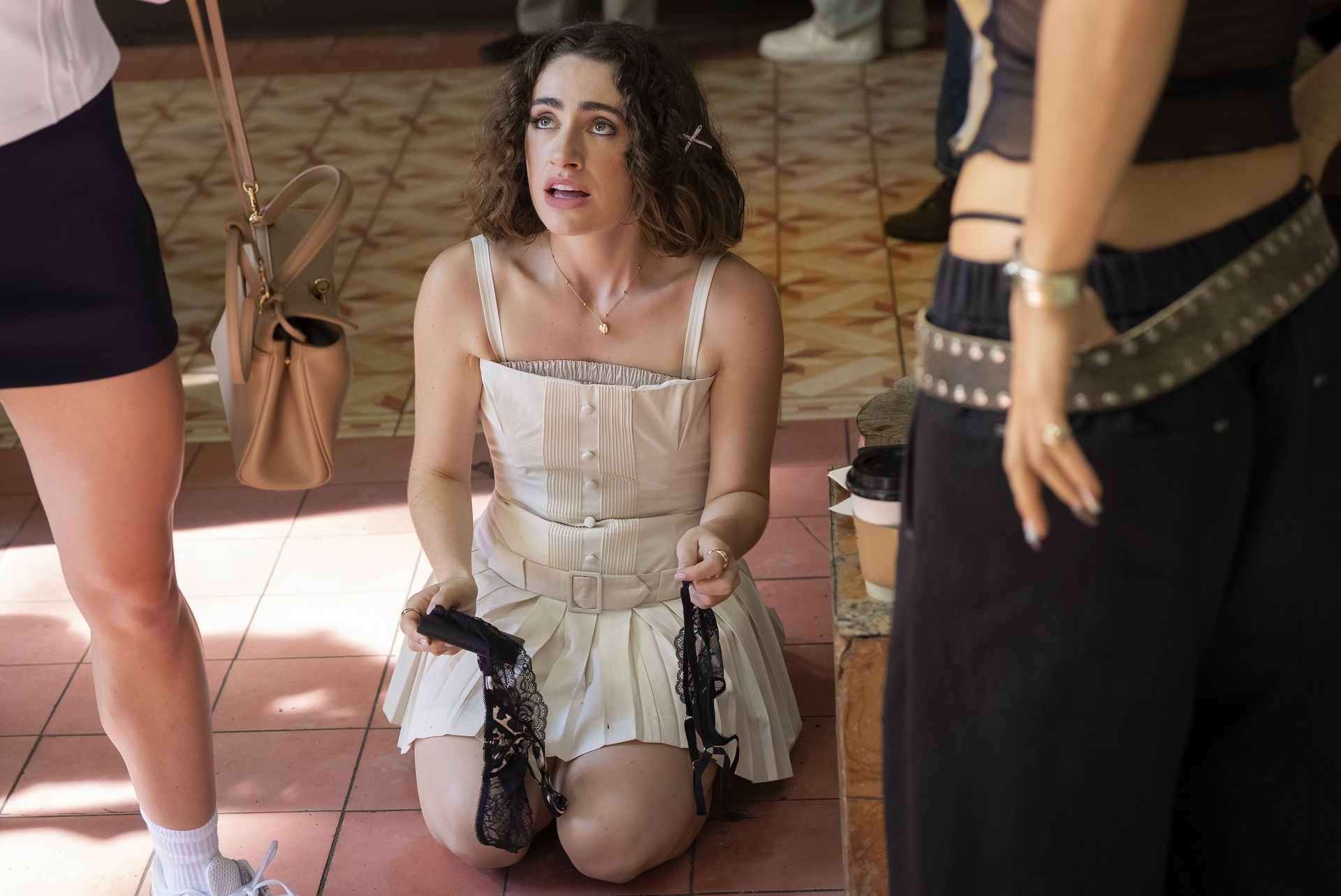Rachel Sennott’s HBO Show ‘I Love L.A.’ is a Nihilistic Reflection of Modern Culture That Exposes the Dark Absurdity of Internet Fame and Its Hollow Promise of Success and Happiness in America’s Most Iconic City, Challenging the Very Essence of Our Pursuits and Aspirations in Contemporary Society.
In his seminal video essay “Los Angeles Plays Itself,” critic Thom Andersen analyzes the complex relationship between Los Angeles and its portrayal in film and television. He raises a provocative point regarding the city’s abbreviated name, suggesting that the simplification to “L.A.” contributes to a broader misunderstanding of the city’s character and cultural nuances. Within this context, the new HBO series “I Love L.A.,” featuring comedian Rachel Sennott, invites scrutiny not only for its content but also for what it represents in the current societal landscape.
“I Love L.A.” is more than just a title; it encapsulates a feeling that resonates deeply with both locals and those who idolize the city from afar. However, the show meticulously reveals the disconnection between the glamorous perceptions of Los Angeles and the stark reality that many face. This dichotomy serves as a microcosm for broader themes in contemporary culture, particularly the phenomenon of internet fame, which often promises fulfillment yet delivers a sense of emptiness.
Sennott’s character navigates a world steeped in social media and digital personas, showcasing the absurdities and superficialities of life in Los Angeles. This portrayal aligns with Andersen’s assertion that cinematic representations of the city can mislead audiences about its true nature. The show’s humor cleverly critiques the obsession with status, beauty, and the incessant pursuit of validation through online presence. It underscores a cultural nihilism where individuals chase after fleeting moments of fame, often at the expense of genuine connections and personal fulfillment.
The allure of L.A. has long been predicated on its status as a haven for dreams and aspirations. The city has historically attracted talent and ambition, from the early days of Hollywood to the current streaming era. Yet, as “I Love L.A.” suggests, this pursuit can also lead to disillusionment. The series shines a light on the often-unspoken struggles of those trying to make it in an industry that thrives on appearances and social currency rather than intrinsic talent or hard work.
In exploring the concept of internet fame, the show deftly illustrates how social media platforms have transformed personal narratives into commodified content. Individuals curate their lives for an audience, often prioritizing engagement over authenticity. Sennott’s character epitomizes this conflict, grappling with the need to maintain a façade while feeling increasingly disconnected from her true self. This theme echoes throughout the series, inviting viewers to reflect on their relationships with digital identities and the impact of these platforms on mental health.
Furthermore, “I Love L.A.” reveals how the pursuit of fame can create a cycle of anxiety and depression. The pressure to constantly perform and present an idealized version of oneself can lead to feelings of inadequacy and isolation. Rather than serving as a source of empowerment, internet fame can become a double-edged sword, offering momentary highs while leading to profound lows. Sennott’s performance captures this struggle, balancing humor with poignant moments that resonate with anyone who has felt the weight of societal expectations.
The show also addresses the cultural implications of living in a city synonymous with fame and ambition. Los Angeles has been depicted in countless films and television shows, often as a shiny utopia where dreams come true. However, “I Love L.A.” turns this narrative on its head, revealing the inherent absurdity and emptiness that often accompanies the chase for success. The vibrant backdrop of the city becomes a character in its own right, embodying the contradictions of a place that attracts millions while fostering loneliness among its inhabitants.
By examining the contrasting realities of those who live in Los Angeles, Sennott and the series invite audiences to question their own relationships with ambition and success. The notion that happiness is attainable through fame is challenged, prompting viewers to reconsider their values and aspirations. This thematic exploration aligns with a growing discourse surrounding mental health and the impact of social media on personal well-being.
In the backdrop of a city where aspiration meets disillusionment, “I Love L.A.” serves as a cultural commentary that resonates with a generation grappling with similar issues. The absurdities portrayed in the show reflect a larger societal introspection about the nature of fulfillment and the cost of living in a digitally driven world. Sennott’s portrayal of the complexities of life in Los Angeles provides a candid lens through which the audience can examine their own pursuits.
“The city plays itself,” Andersen suggests, pointing to the ways in which Los Angeles is more than just a setting; it is a living, breathing entity that influences the lives of its residents. “I Love L.A.” embodies this sentiment, revealing the layers of experience that define life in the city. The show’s humorous yet sobering approach draws attention to the contradictions and challenges faced by those who navigate the treacherous waters of fame, identity, and belonging.
As the series continues to unfold, it is poised to spark conversations about the often-unseen struggles behind the glittering façade of Los Angeles. Rachel Sennott’s work in “I Love L.A.” is not just entertainment; it serves as a keen observation of modern culture, dissecting the motivations behind our desires for fame and the implications it carries. The characters’ journeys through the city’s maze reflect a broader quest for meaning in a world that often prioritizes surface over substance.
In conclusion, the interplay of humor and reality in “I Love L.A.” encapsulates the essence of the city while engaging with relevant societal critiques. Through its exploration of internet fame and the complexities of modern identity, the series challenges viewers to reflect on their own lives in the context of a culture that often glorifies the superficial. As audiences tune in, the show invites them to confront the realities of their own pursuits and the existential dilemmas that accompany the chase for validation in a world dominated by digital personas.




